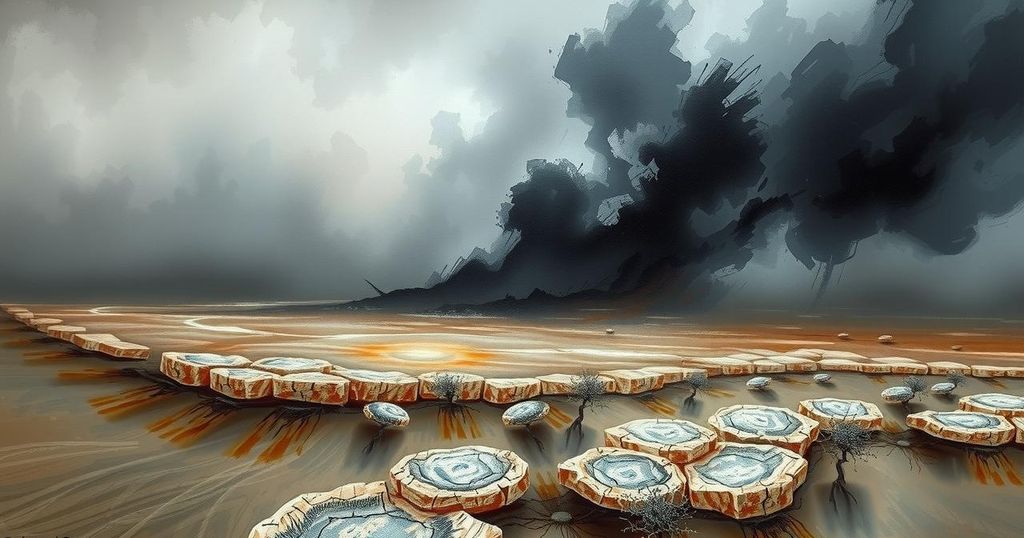South Sudan’s Political Turmoil: Vice President’s Arrest Heightens Conflict Risks
The arrest of South Sudan’s First Vice President Riek Machar signals escalating tensions that threaten the fragile peace established after years of civil war. The international community and local citizens express urgent calls for dialogue amidst fears of renewed conflict, as arrests of Machar’s allies continue and violent clashes occur in Upper Nile State.
The recent arrest of South Sudan’s First Vice President, Riek Machar, has escalated tensions in the country, raising fears of a potential return to widespread conflict. The arrest, described as unconstitutional by Machar’s party, occurred when a convoy of armed vehicles stormed his residence in Juba. This incident follows a deterioration of a power-sharing deal between Machar and President Salva Kiir, previously established to maintain peace after a devastating civil war.
The United Nations Mission in South Sudan (UNMISS) warned that the nation is on the brink of a major conflict, with UNMISS head Nicholas Haysom declaring, “Tonight, the country’s leaders stand on the brink of relapsing into widespread conflict.” The ramifications of this unrest would not only affect South Sudan but could also have repercussions across the region.
Since the 2018 peace deal, South Sudan has continued to struggle with economic and security challenges. Analysts suggest that President Kiir, at 73 years old, has been attempting to consolidate power at Machar’s expense, resulting in the arrests of over 20 of Machar’s allies in recent months. Furthermore, violent confrontations between the opposing factions have already emerged, particularly in Upper Nile State.
Machar’s party has accused government forces of attacking military training centers established as part of the peace agreement, aiming to integrate all military factions. Locals in Juba have expressed their concerns, fearing a slide back into warfare. One citizen articulated: “I feel like we are going back to war while we still need peace. Our leaders need to embrace dialogue rather than guns.”
Before the arrest, Kiir had signified a commitment to peace, yet ongoing violent confrontations suggest otherwise. International analysts characterize the situation as a dangerous tipping point, urging immediate dialogue between Kiir and Machar to avert further violence. Concerns from international observers have led several embassies, including those from Norway and Germany, to close or reduce their presence in Juba, citing safety concerns for their staff and citizens.
The arrest of Riek Machar has significantly intensified the political crisis in South Sudan, hinting at the resurgence of conflict after years of fragile peace. The increasing arrests of Machar’s allies and violent clashes indicate a volatility that may spiral out of control if not addressed through dialogue. The urgent call for peace from both citizens and international observers signals a critical moment for South Sudan’s leaders to take decisive action and prioritize stability over conflict.
Original Source: www.newstopicnews.com




Post Comment